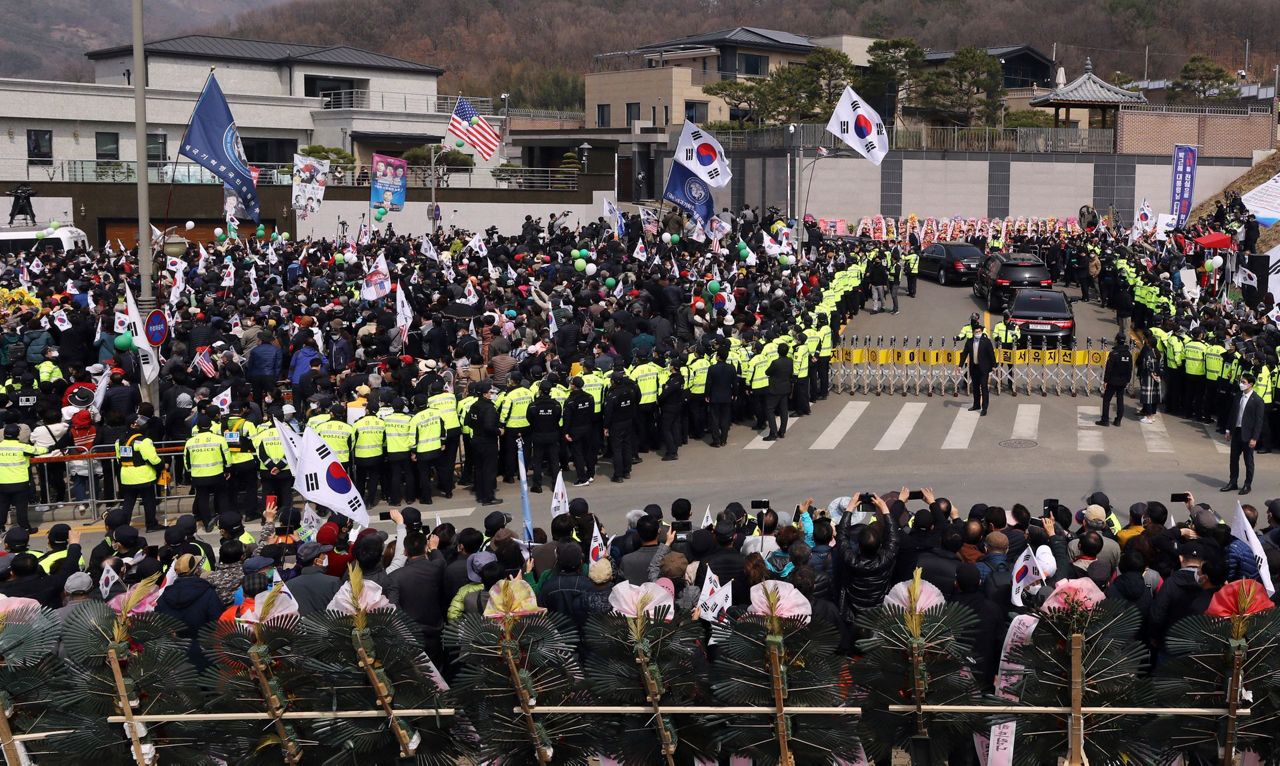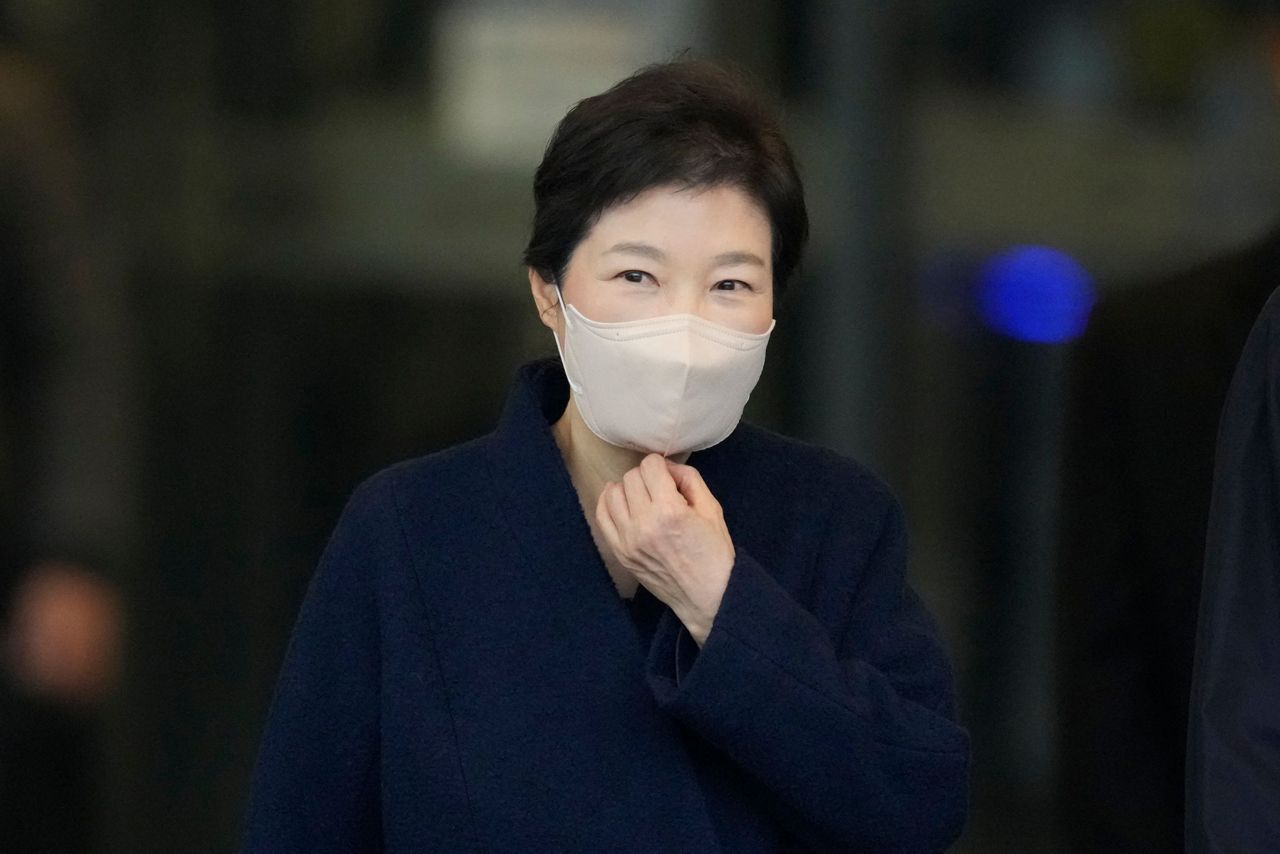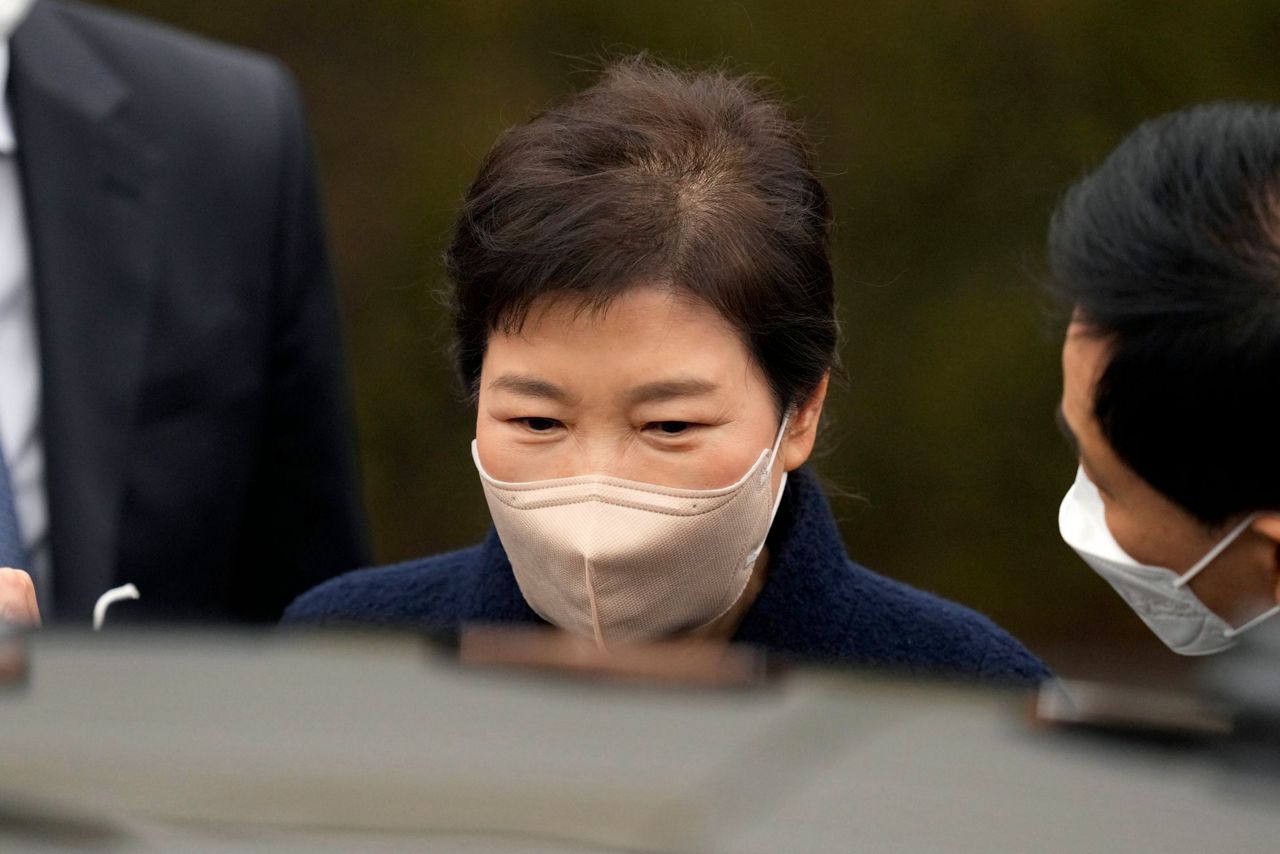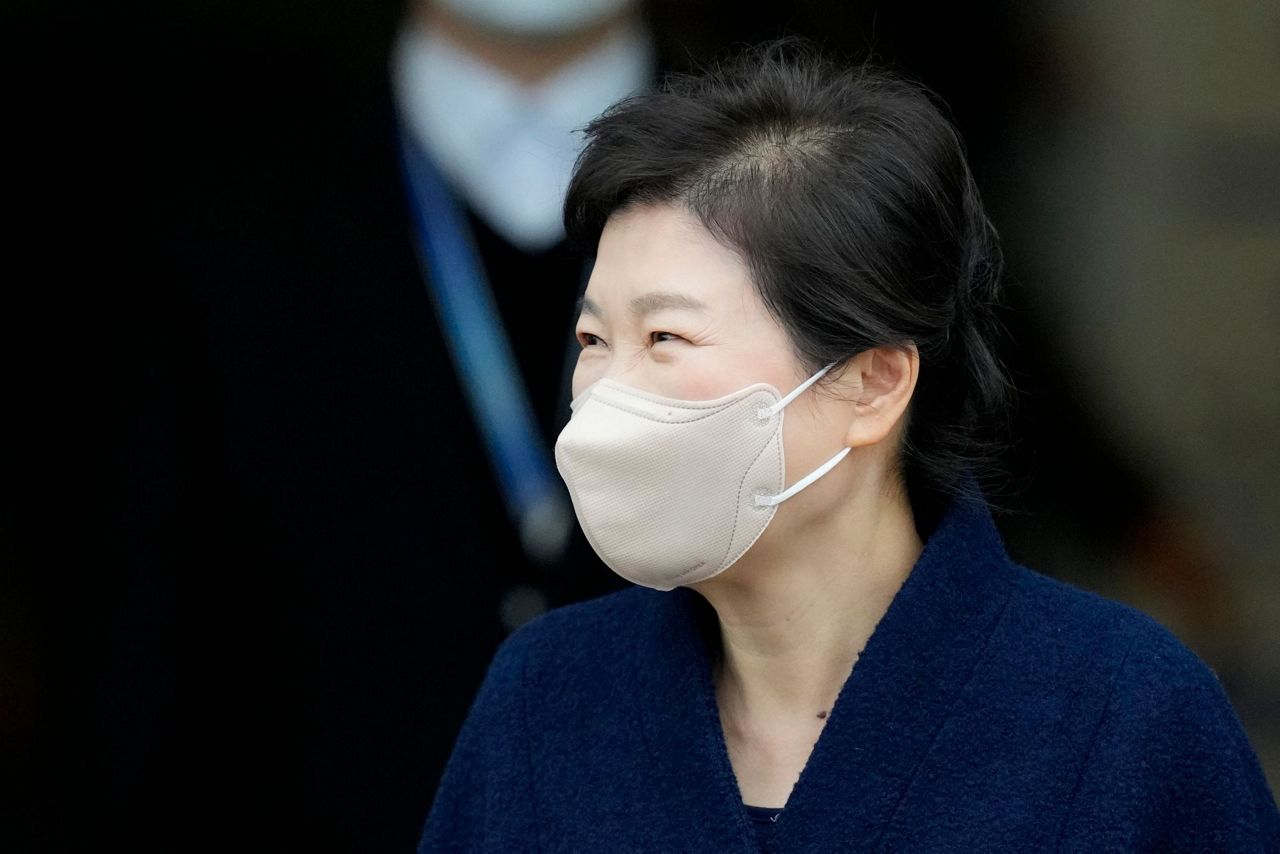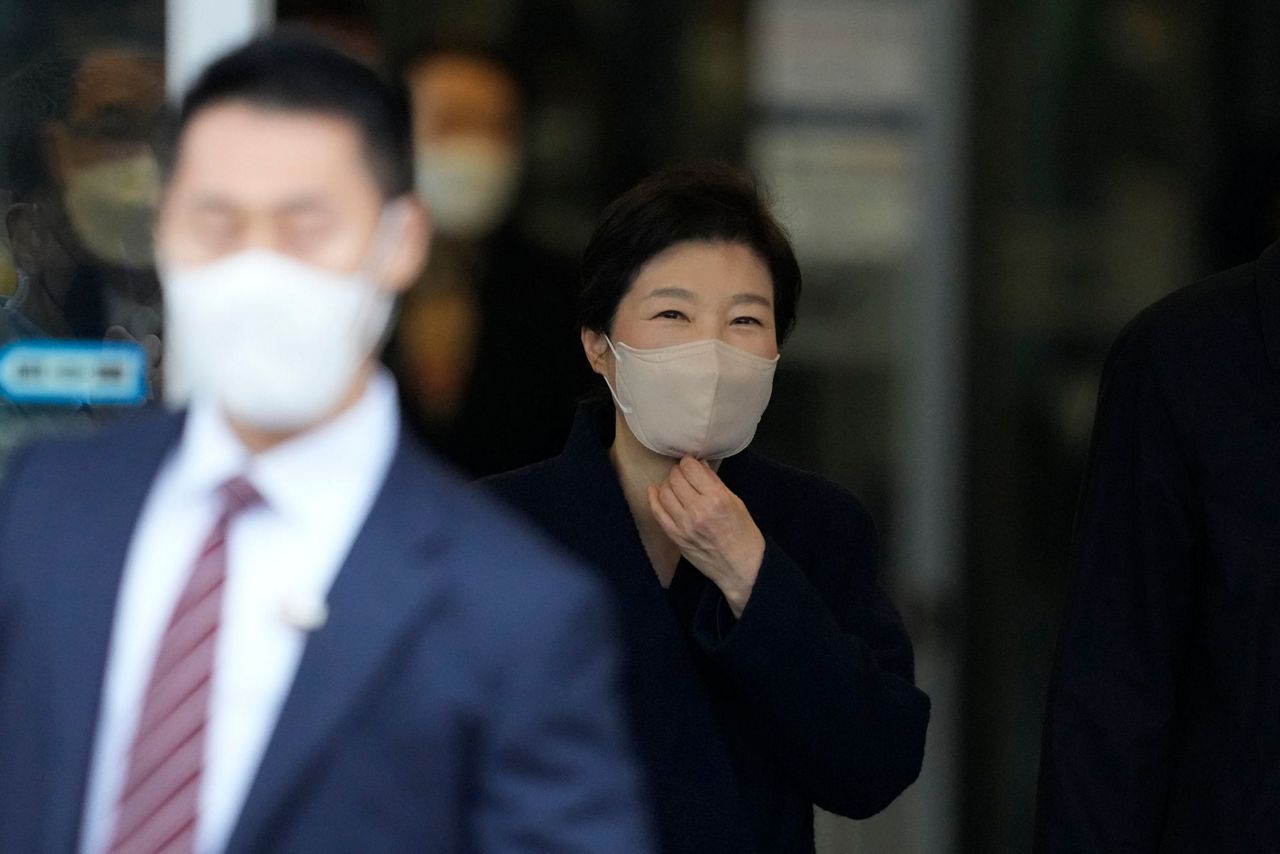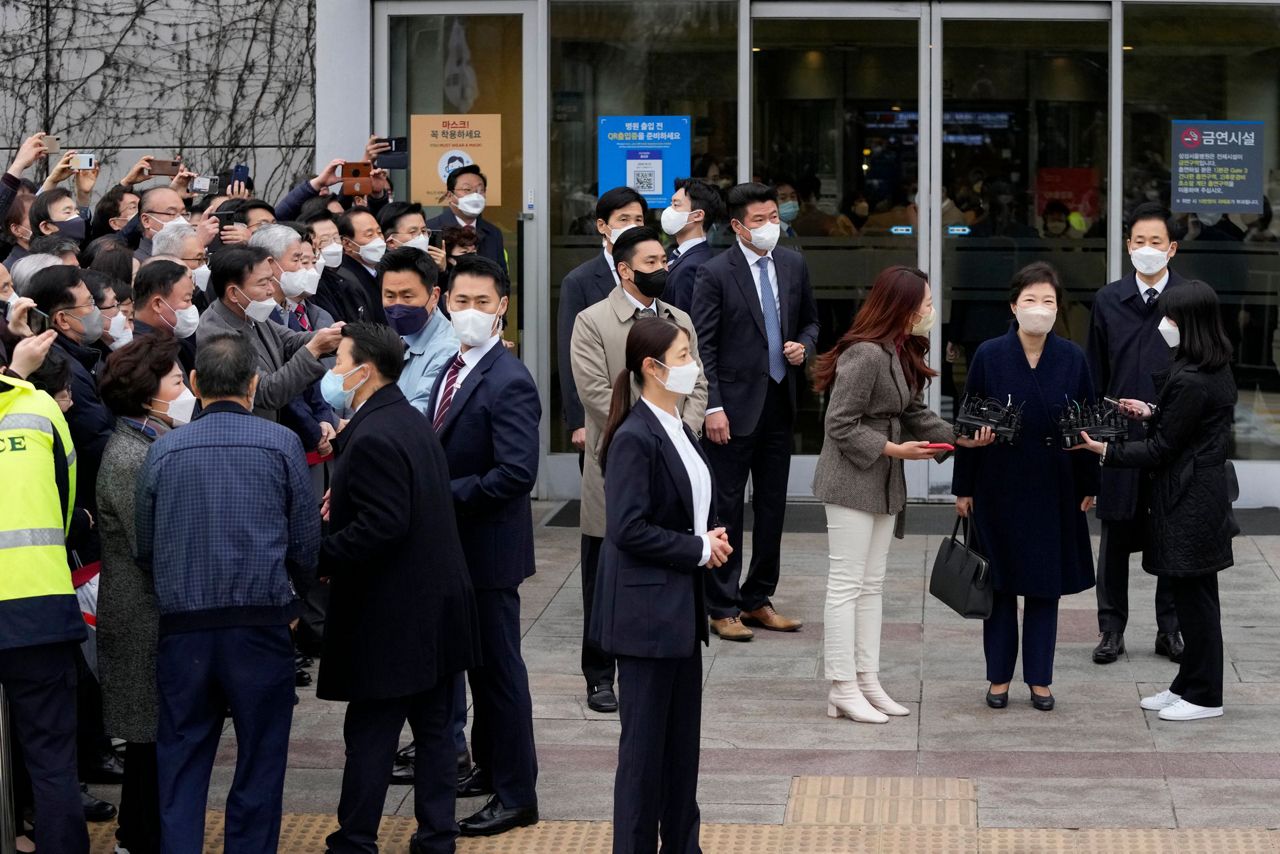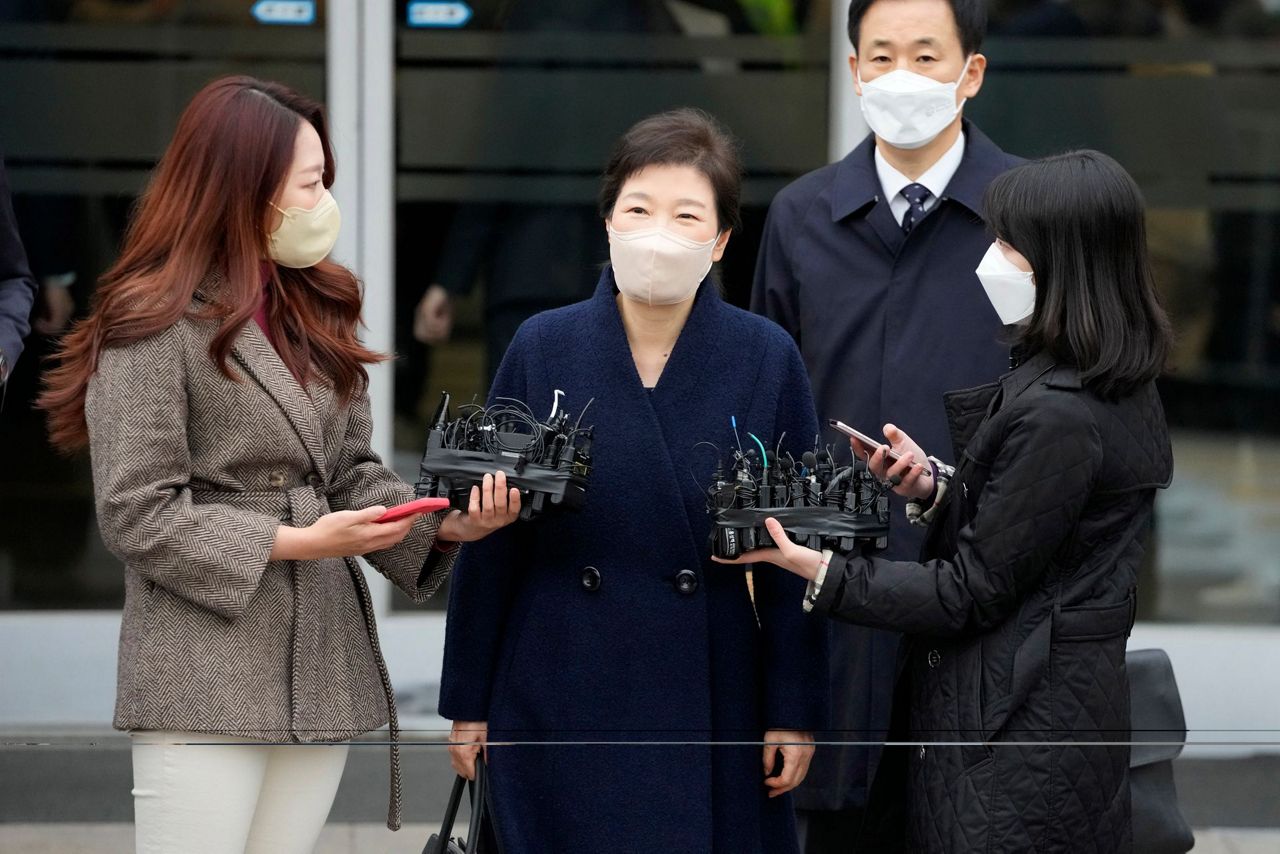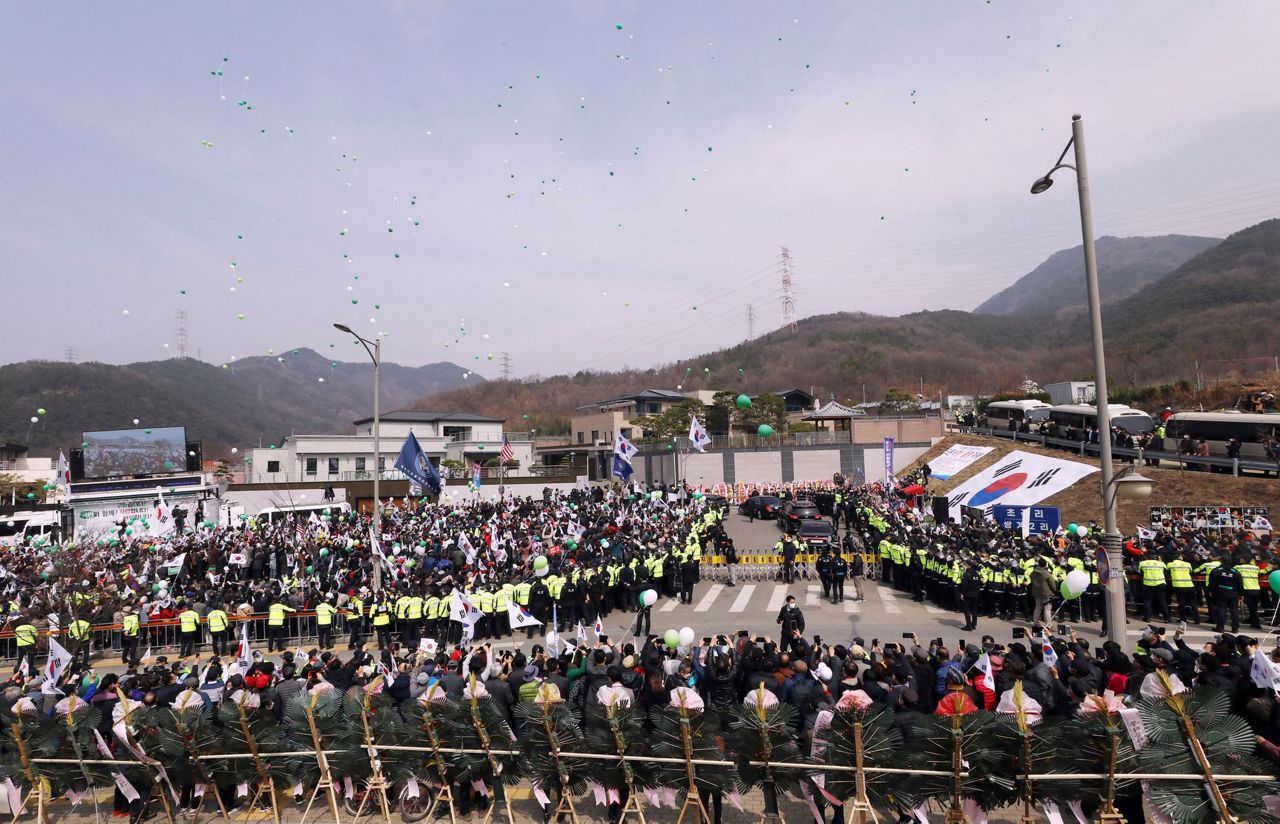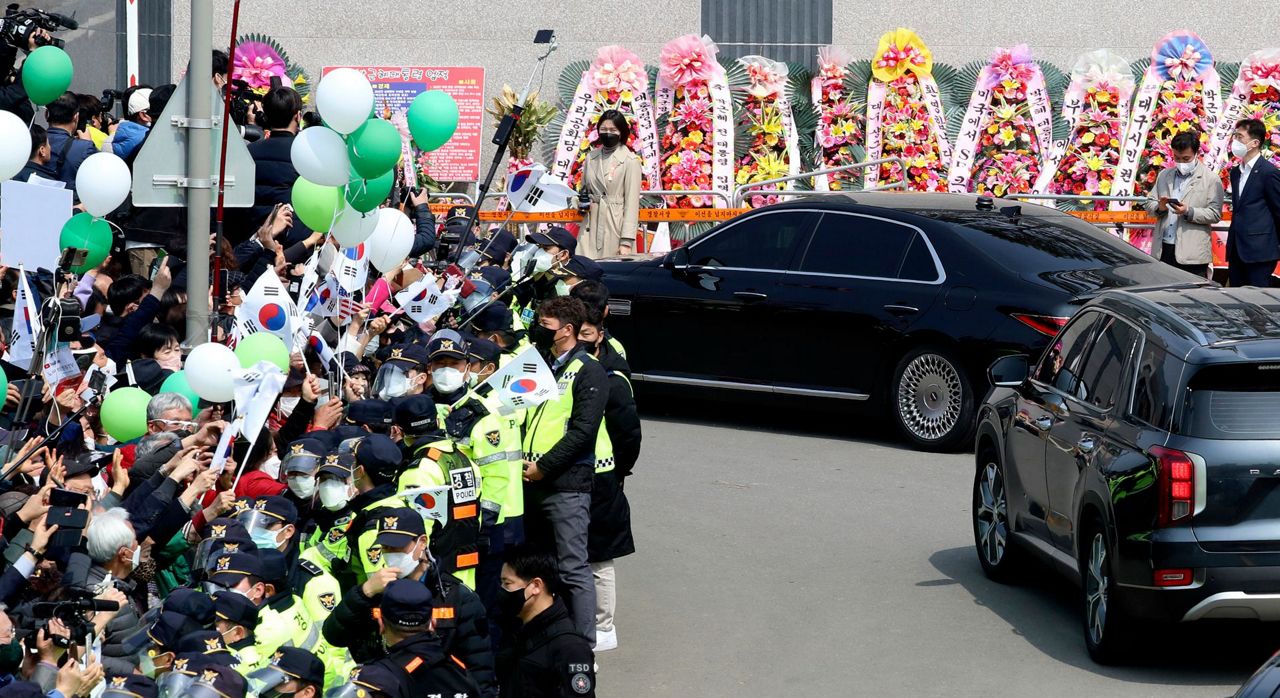SEOUL, South Korea (AP) — Three months after being pardoned for one of South Korea’s worst government-corruption scandals, former President Park Geun-hye went home Thursday after being released from a hospital.
She slowly walked out of Samsung Medical Center in Seoul as cameras flashed and dozens of supporters shouted: “Park Geun-hye! President!”
“I express my greetings to our people for the first time in five years. My health has really improved, thanks to your worries,” Park said. She thanked the hospital’s medical staff and stepped into a black sedan without taking questions.
She then stopped by a cemetery and offered flowers and incense at the grave of her father, slain military dictator Park Chung-hee, and bowed quietly in tribute.
Hours later, a crowd of thousands waving national flags and balloons chanted her name amid a heavy police presence as Park arrived at her high-walled residence in her southern hometown of Daegu, where supporters covered a path near her home with hundreds of wreaths. Some held up banners with photos of Park and her father and signs claiming her innocence or wishing for her happiness.
Stepping out of the car, Park smiled widely through her COVID-19 mask and hugged a child who presented her with flowers. She then stepped up to a microphone stand in front of her gate to deliver a message thanking her supporters. Her speech was briefly interrupted when someone from the crowd threw what appeared to be a bottle that shattered as it landed nearby, prompting bodyguards to surround her and raise up screens.
“The past five years have been a very difficult time for me to endure,” Park said before thanking her neighbors in Daegu’s Dalseong county, where she was voted a four-time lawmaker from 1998 to 2008.
Park said she hopes to make unspecified contributions, “even if small,” to help the country, but made no specific mention of plans to get involved in politics again.
“While I was president, I tried hard to work for our nation and people, but was unable to fulfill a lot of my dreams. Those dreams are now up to the hands of others,” Park said.
Park was ousted from office and imprisoned for bribery and other crimes in 2017 in a stunning fall from grace. She has described herself as a victim of political revenge and refused to attend most of her trials.
Conservatives, who were initially left in disarray by her downfall, recovered to narrowly win this month’s presidential election, but only after fielding a candidate who had helped send her to jail.
President-elect Yoon Suk Yeol was part of a special investigation team that indicted Park in 2017 for bribery, abuse of power and extortion, which established her as the central figure in an influence-peddling scandal that also involved a shadowy confidante and a billionaire Samsung heir.
Some of Park’s supporters at the hospital expressed anger toward Yoon as she was released, shouting that he was a “traitor” and “treacherous criminal,” but there were no major scuffles with police.
Yoon, who takes office on May 10, told reporters he wishes for Park’s quick recovery from her health problems and hopes to visit her in Daegu soon. When asked whether he plans to invite Park to his inauguration ceremony, Yoon said, “You’re supposed to invite all former presidents, so of course.”
Park had served less than a quarter of her 22-year sentence before President Moon Jae-in pardoned her in December, citing her health problems and a need to promote unity in the face of pandemic-related difficulties. Moon, who comfortably won the presidential by-elections in 2017 following Park's ouster, sent Park a potted orchid with a ribbon that said “always be healthy,” his office said.
She had been treated at the Seoul hospital since November. Officials have refused to elaborate on Park’s health, but local media said she has been suffering from a lumbar disc problem, a shoulder injury and dental problems as well as mental stress.
Park was once the darling of conservatives in South Korea, who celebrate her father as a hero whose industrial policies pulled the country up from postwar poverty despite his brutal suppression of human rights. She was elected its first female president in 2012, beating Moon by a million votes.
Copyright 2022 The Associated Press. All rights reserved. This material may not be published, broadcast, rewritten or redistributed without permission.



